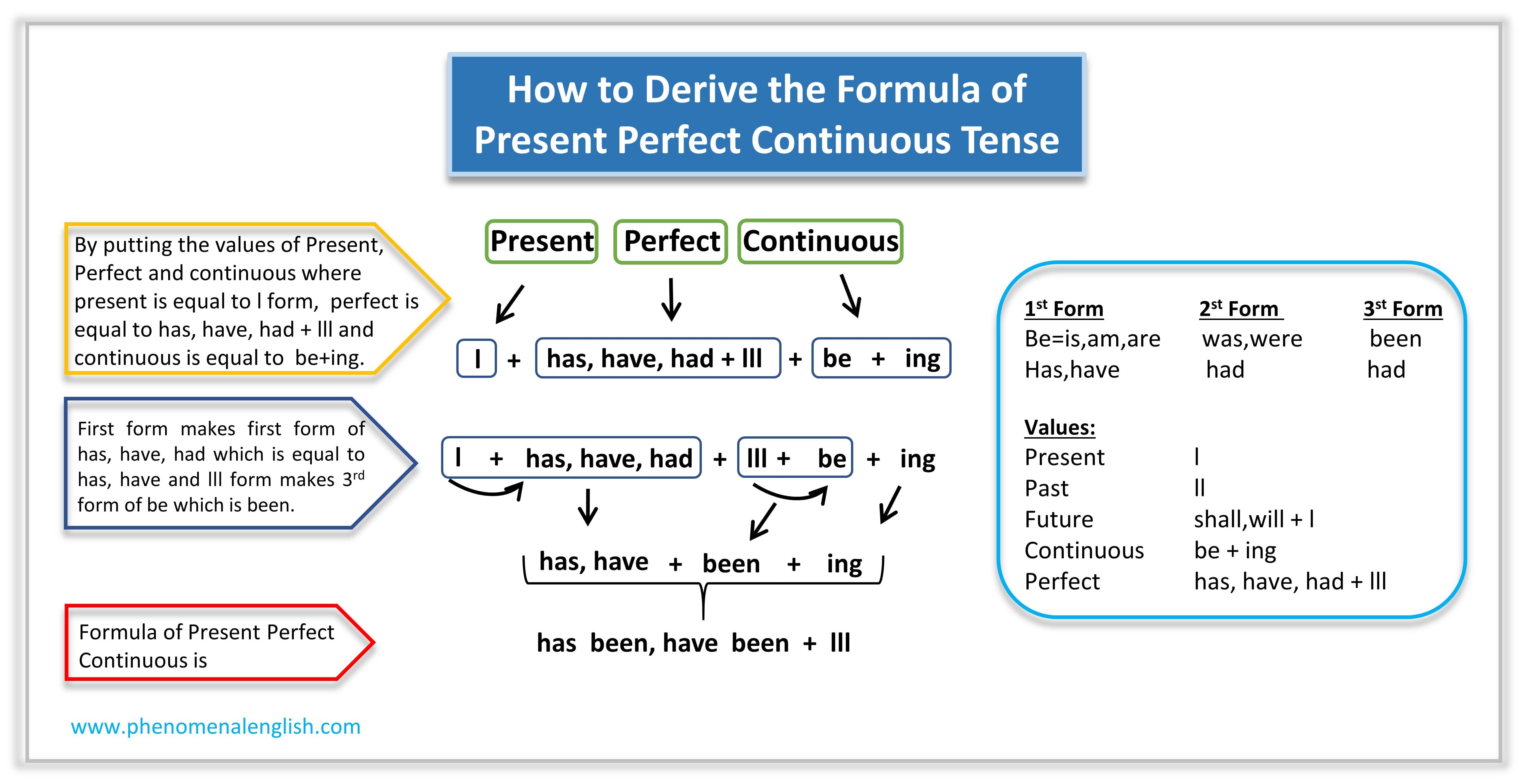Phenomenal English
Solution Destination to your Problems
Present Perfect Continuous (Progressive)
Definition of Present Perfect Continuous
Present Perfect Continuous tense is used to express an action that starts somewhere in the past and still continues in the present.
This tense can be said a combination of Present Perfect and Present Continuous. Starting point of the action or total duration of the action is also mentioned sometime. Mainly this tense puts an emphasis on duration of action not on the result of the action.
Usages of Present Perfect Continuous
- To express a long activity, process or feeling etc starting deep in the past and that continues till now i.e unfinished actions with some time marker.
- I have been writing this book for over a year.
- He has been feeling tired after hours of travel in the plane.
- The oppressor regime has been curbing the rights of civilians for two years.
- We use Present Perfect Continuous to express the actions or events starting from recent past and that continues till now i.e unfinished actions with some time marker like lately, recently or just etc.
- Just he has been standing around me.
- Recently, I have been facing severe criticism over my new book.
- Students have been celebrating their success for an hour in the lobby.
- To express very recently finished actions that show the effect of present.
- My maid has been washing the whole afternoon.
- Fishermen have been catching fish for all the day.
- He has been speaking on different issues for an hour.
Formation of Present Perfect Continuous


Affirmative Sentences
In positive or affirmative sentences of Present Perfect Continuous Tense we use has been, have been and ing form of verb. Have been is used with 1st person, 2nd person or 3rd person plural i.e (I, we, they, you or plural names ) and has been with 3rd person singular i.e (he, she, it, singular names).
Examples
- She has been working in this factory for two years.
- I have been playing badminton since the start of the summar.
- He has been watching hockey match for an hour.
- Jacob has been enjoying music for two months.
- My brother has been practicing law since 1990.
Use of SINCE and FOR
We use Since when the starting point or time of the given action is mentioned. For is used when time period of an action is mentioned in the sentence.
Examples
He has been playing cricket since 1 o'clock.He has been playing cricket for one hour.
Interrogative Sentences
In interrogative sentences of Present Perfect Continuous Tense we drag has, have before subject and use ing form of verb. Have been is used with 1st person, 2nd person or 3rd person plural i.e (I, we, they, you or plural names ) and has been with 3rd person singular i.e (he, she, it, singular names).
Examples
- Has he been playing chess since Monday?
- Have I been calling you for two days?
- Has Stephen been preparing his interview for over a week?
- Has he been riding a heavy bike since his youth?
- Have these plants been growing all the summer in my backyard.
Negative Sentences
In negative sentences of Present Perfect Continuous Tense we use not after has, have and ing form of verb. Have been is used with 1st person, 2nd person or 3rd person plural i.e (I, we, they, you or plural names ) and has been with 3rd person singular i.e (he, she, it, singular names).
Examples
- She has not been doing job since her father died.
- We have not been waiting for you for an hour.
- I have not been searching my lost books for three month.
- Jessica has not been taking wrong path to her office for a month?
- We have not been living in Canterbury since 2001.